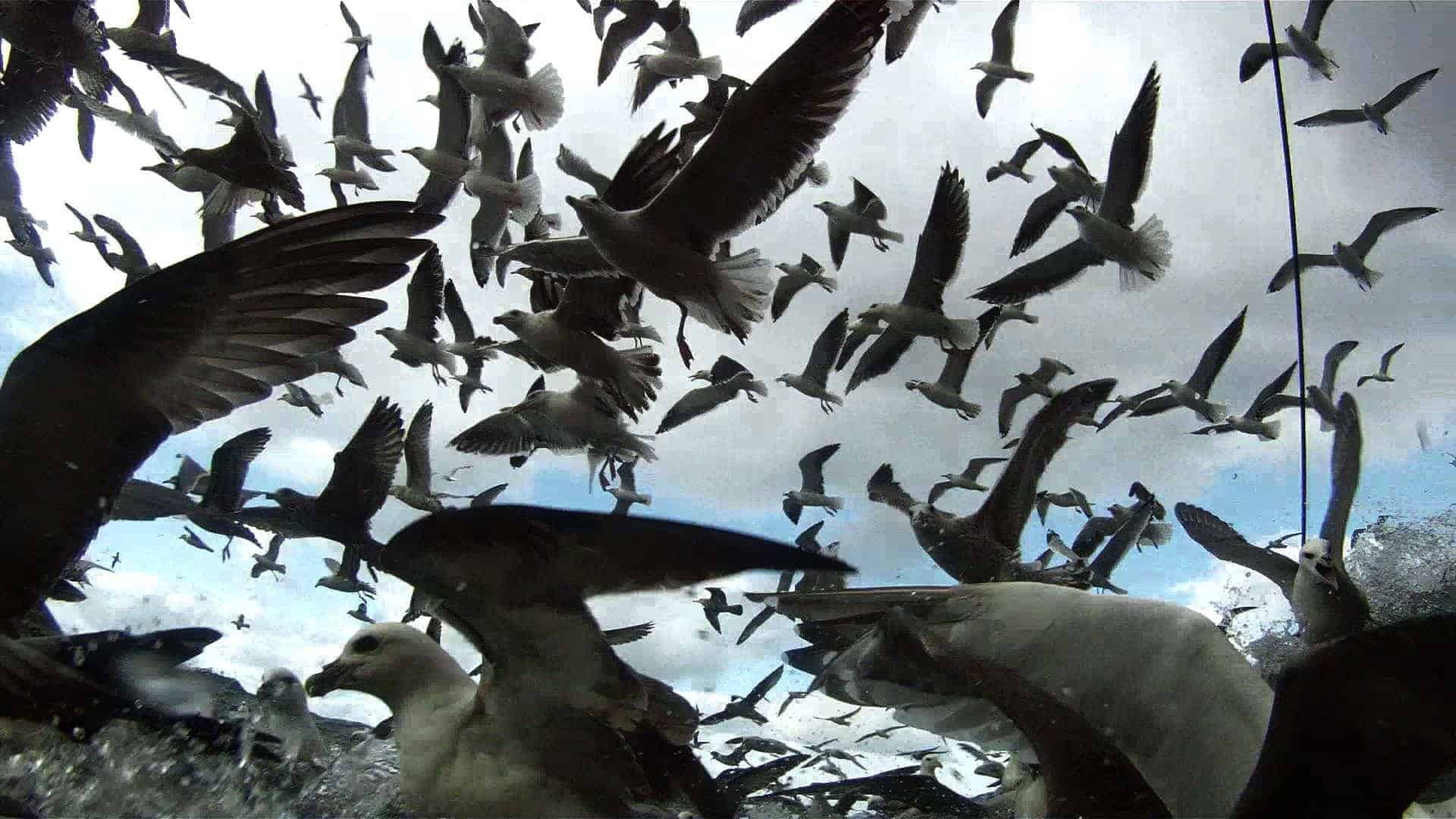ENSAYOS and The Wild Living Marine Resources Belong to Society as a Whole present MARINE: 06.10.2019 at 6 pm, Kunstnernes Hus Kino, Oslo, Norway
This experimental documentary film shows captivating footage of an American fishing boat and its crew throughout a night. The movie is filmed with sports cameras placed on the boat itself, on its trawl and underwater – the perspective dissolves and human beings play a secondary role. The fact that the film is without any commentary makes this bleak and hypnotic movie experience even more intense.
Lucien Castaing-Taylor is a British anthropolgist, artist and Director at the Sensory Ethnography Lab at Harvard University.
Véréna Paravel is a French anthropologist and artist working with film, video and photography. Her works have been exhibited at MoMa, Tate, Whitney Biennal and documenta 14, amongst others.
Mariken Lauvstad is a theater writer, playwright, actor, director and teacher. She wrote about Leviathan in the essay “Performing Arts in Our Anthropocene Time” in the Norwegian Shakespearean Magazine, which was named Critic of the Year 2018/19 in Norway.
ABOUT THE EVENT SERIES:
The Wild Living Marine Resources Belong to Society as a Whole is a series of interdisciplinary events at Kunstnernes Hus, organized by Geir Tore Holm, Søssa Jørgensen and Randi Nygård, as part of Ensayo#4. The events have been named after section 2 of the Norwegian Marine Resources Act and will be based on the legal text, divided according to its wording. The words are starting points for walks, film screenings, lectures and discussions.
The project relates to the law not only with the usual legal definitions but also with a more poetic and fundamental approach. It examines different ideas about the environment and our role in nature, our management of natural resources, responsibilities, views on nature, language and values. It seeks to present alternative views and experiences. We need to better understand ourselves as integrated parts of both the natural cycles and societal structures and we need to see nature as part of society to find new and better ways of organizing our communities.
Derrida writes, in “The Animal That Therefore I Am”, that thinking about the animal, if there is such a possibility, must derive from poetry. So, if we want to see plants and animals as part of our society and democracy, and ourselves as part of nature, then it can not happen only with our rationality, but also in emotional, poetic and intuitive ways.
The project is supported by Fritt Ord and Arts Council Norway.

